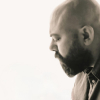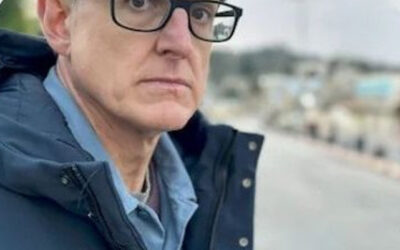The Destruction of the Sacred: A Pathway to Societal Transformation

Europe: From Ecclesiastical Domination to Intellectual Liberation
The Middle Ages in Europe were defined by the Catholic Church’s domination of nearly every aspect of life. Sacred texts, particularly the Bible, were considered infallible and provided the foundation for societal norms, laws, and ethical standards. However, this centralization of power also restricted intellectual and societal progress. The Church’s authority extended far beyond spiritual matters, shaping education, politics, and even scientific exploration.
By restricting access to sacred texts and reserving interpretation solely for the clergy and elite, the Church created an environment where dissent was perilous. Reformers like John Wycliffe and Jan Hus, who sought to democratize access to religious knowledge, faced persecution and martyrdom. The Inquisition further solidified orthodoxy, stifling critical thought and scientific inquiry. Intellectual stagnation was inevitable in a society where questioning sacred authority was tantamount to heresy.
The implications of this control were far-reaching. Literacy rates remained low, as reading was unnecessary for the majority. Innovation in fields like science and philosophy was suppressed, as ideas that contradicted Church doctrine were deemed blasphemous. This intellectual monopoly maintained the status quo but at the cost of societal advancement.
The Protestant Reformation marked a turning point. Figures like Martin Luther challenged the Church’s monopoly over sacred texts, translating the Bible into vernacular languages and encouraging personal interpretation. Luther’s German Bible empowered ordinary people to engage with religious teachings directly, promoting intellectual independence.
Simultaneously, the Renaissance emphasized humanism, individual achievement, and empirical inquiry. Johannes Gutenberg’s invention of the printing press revolutionized knowledge dissemination, breaking the Church’s control over information. For the first time, ideas could spread widely and rapidly, laying the groundwork for the Scientific Revolution. Thinkers like Copernicus and Newton defied religious orthodoxy by promoting empirical and rational methods to understand the universe.
The Enlightenment represented the culmination of Europe’s intellectual transformation. Philosophers like Voltaire, Kant, and Locke advocated for reason, skepticism, and individual freedoms, challenging the intertwined authority of church and state. Higher Criticism emerged during this period, enabling scholars to analyze religious texts in historical and cultural contexts. This critical approach dismantled the notion of divine inerrancy and encouraged intellectual freedom.
The consequences of these transformations were profound. Democratic principles, scientific advancements, and human rights flourished. Revolutions like the American and French were inspired by Enlightenment ideals, emphasizing liberty, equality, and individual rights. Europe’s liberation from ecclesiastical control catalyzed progress in diverse fields, furthering a culture where innovation and critical thinking thrived.
Five Centuries Behind Schedule
Many Islamic societies today face challenges reminiscent of medieval Europe. Sacred texts, such as the Quran and the Sira, significantly influence societal norms, laws, and governance. In several nations, the conflation of religion and state authority suppresses intellectual freedom and critical thought. Sharia law, derived from sacred texts, governs not only personal matters but also public behavior and criminal justice. This integration often stifles creativity, innovation, and societal progress.
Educational systems in many Islamic societies prioritize rote memorization of sacred texts over critical analysis. This approach perpetuates intellectual stagnation, as students are discouraged from questioning traditional interpretations. Intellectuals who challenge religious orthodoxy often face severe repercussions, including persecution or exile. For instance, individuals like Taslima Nasrin and Islam Behery have faced threats and legal actions for their reformist views.
Fear of questioning the sacred extends beyond formal education. Societal norms discourage open dialogue, creating an environment where dissent is dangerous. This cultural rigidity hinders modernization and reinforces a cycle of intellectual dependence on clerical authority.
Steps Towards Transformation
While the challenges are significant, the pathways to transformation are well-documented:
- Education Reform: Curricula must prioritize critical thinking, scientific inquiry, and the study of sacred texts in historical contexts. Encouraging students to engage with diverse perspectives can foster intellectual independence.
- Open Dialogue: Promoting debates within religious communities can help reconcile faith with modernity, enabling more progressive interpretations of sacred texts.
- Protection of Reformers: Legal frameworks must safeguard intellectuals and activists from persecution. International support can amplify their voices and ensure their safety.
- Technological Empowerment: Digital platforms can democratize access to information, bypassing traditional gatekeepers. Social media can amplify marginalized voices, fostering a culture of intellectual engagement.
Initiatives like Project Ex are pivotal in pushing transformation in Islamic societies. By challenging conventional narratives and promoting intellectual engagement, such initiative can catalyze societal progress through:
- Challenging Narratives: By producing content that critically examines political, religious, and social structures, Project Ex can encourage intellectual engagement in the Arab world.
- Promoting Education: Offering resources and platforms for learning about the historical and cultural contexts of sacred texts empowers individuals to think critically.
- Amplifying Reformist Voices: Creating safe spaces for intellectuals and activists to share their ideas builds a culture of open dialogue and debate.
- Educating the West: Providing insights into the complexities of the Arab world helps Western audiences understand the challenges and opportunities for transformation.
- Leveraging Technology: Using digital platforms to disseminate knowledge and connect individuals across cultures bridges gaps and promotes intellectual freedom.
The destruction of intellectual monopolies, understood as dismantling the sacred, is crucial for societal transformation. Europe’s historical journey from ecclesiastical control to intellectual freedom is a blueprint for addressing similar challenges in Islamic societies. Prioritizing education, advancing open dialogue, and promoting international collaboration can create environments conducive to innovation and human flourishing. Project Ex has the potential to play a transformative role in this journey.
![]() About the Author
About the Author

DANNY BURMAWI
Danny Burmawi is an Author, speaker, an advocate for religious liberty, and rational thought, a content creator, and social entrepreneur with a passion for transformative media and advocacy.
Related Posts
The Hijacking of Modernity: A Cautionary Tale for Europe
The Hijacking of Modernity: A Cautionary Tale for Europe The Arab world wasn’t always veiled in black. Not long ago, cities like Cairo, Damascus, and Baghdad pulsed with modern life. Women wore elegant dresses, walked freely in public, and attended universities...
Why Louis Theroux Got It Wrong
Why Louis Theroux Got It Wrong Louis Theroux’s latest BBC documentary, The Settlers, a follow-up to his 2011 film The Ultra Zionists, has reignited global scrutiny of Israeli settlements in the West Bank. By embedding himself among ultra-nationalist settlers like...
Lebanon: The Forgotten Proof That the Arab-Israeli Conflict Was Never About Land
Lebanon: The Forgotten Proof That the Arab-Israeli Conflict Was Never About Land When Greater Lebanon was established in 1920 under French mandate, its Sunni Muslims population, from Tripoli to Beirut to the southern coast, rejected it immediately. Their objection was...


